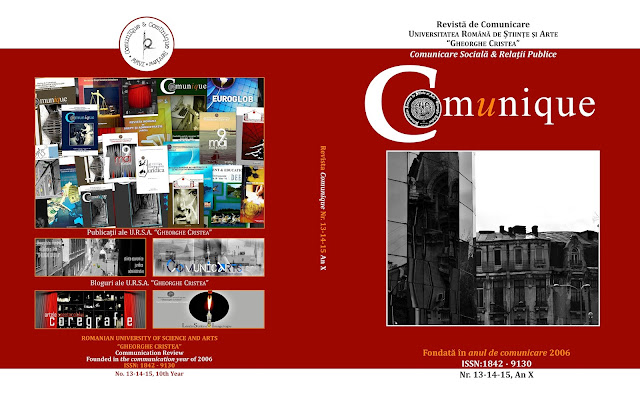Drd. Albert Gjoka: Morphology of Albanian socialist i-realism
(A brief history of method, specifications and process that fulfilled the rules of socrealism)
The socialist
realism as a creative method was imported by the Soviet Union in Albania,
despite its application owned its specifications in every country of the
communist east. Even though it found a preliminary ground as to penetration of
communist ideas in Albania during 1930, or that there were ideological and
cultural debates on surrealism, verism, futurism etc, it had begun the
translation of Russian literature (The Mother novel of Maxim Gorky) as well as
there were realized several difficult tests of realist literature, the
socrealism established itself ferociously thanks to the collapse of the system
with the coming into power of communists, given that literature was considered
to be “working-class literature.” The Third Conference of the League of Writers
in 1949 marked the formalization of method, which was developed as a complex
filtering process, drawing a “demarcation line “with the best literature of
tradition or contemporary one, Albanian or native. It took socialist realism
more than 20 years to fulfill the entirety of rules imposed on artists, whose
implementation was guaranteed by socrealist criticism as the guardian and other
extra-literary structures that followed step by step the process of cultural
production, rendering their censorship through mechanisms of pressure and
terror, laying the appropriate ground for auto censorship. We have rendered
these rules a morphological function, similar to morphology of fairy tale,
which is why we have called this method socialist unrealism. Some Albanian
writers implemented the principles of creative method, but others avoided it,
either due to their artistic talent, or due to controversies of esthetic
character. By means of the method, the communist system managed not only to
place art under its service, therefore transforming it into propagandistic
goods, but also to fulfill an Orwellian project of the annihilation of
individualism, creative and spiritual freedom and manipulation of masses. As
such, this project carried an extraordinary cost on creative energies even on
the overwhelming part of literary creativeness, which suffered a similar fate
with the political system, failing to have the reader under its thumb in later
periods.
The socialist
realism continues to remain “a ruin of literary and ideological mixture” that
provokes harsh controversies even nowadays 27 years after, despite there is
still a need to approach objectively with multidisciplinary studies in order to
understand better the relations between the government and art, artist with
ideology and to analyze phenomena that appear in a society when art is
subjected entirely to ideology. The written works during that period are still
unstudied in inner aspects of their structure, formation, method and
influence/manipulation that art inflicts on the society. Despite most of the
works that have failed to have the reader under their thumb and likely no
restitution of communication on them, such thing does not justify the fact that
criticism and communication experts neglect or reject the study of this
“propagandistic arsenal” that was generated in literature and culture during
the communist system. The cultural product of socrealism was put into use by
the system to develop the war of the classes.
“If one ethnic or national group can define another as
nonhuman or subhuman, then culture becomes suddenly and tribally specific and
exclusive. The definition itself is an act of violence and an invitation to
potential if not actualized genocide. When one culture eliminates what it
considers not human, it identifies itself, according to its own definition, as
human. Cultural identification in such a context takes on ultimate poker”[1].
Conferința Internațională de Criminalistică - 2017
La data de 24 octombrie 2017, orele 08.30-20.00, Comisia Pentru Apărare, Ordine Publică și Siguranță Națională a Camerei Deputaților, în parteneriat cu Asociația Criminaliștilor din România, a organizat la București, în Sala ”Drepturile omului” a Palatului Parlamentului României, Conferința Internațională de Criminalistică cu tema ”Prevenirea, combaterea și investigarea criminalistică a actelor teroriste”.
Invitată a fost și Doamna Prof.univ.dr.ing. Lidia CRISTEA, președinta Universității Române de Științe și Arte ”Gheorghe Cristea” din București, care a participat la conferință cu lucrarea ”Rolul și importanța educației în combaterea terorismului”.
Scopul lucrarării sus menționate este ”un semnal cu privire la aspecta ale educației și comunicării mass-media în vederea cunoașterii cauzelor, consecințelor și faptelor de terorism. Prevenirea și combaterea acstor fapte atribuie un rol important în bugete alocate pentru încurajarea unor formatori dedicați în transmiterea către un număr cât mai mare de recptori, a cunoștințelor acumulate în acst domeniu. Specialiștii competenți au sarcina să formeze o serie de profesori și, eventual, în cadrul școlilor să se predea noțiuni de prevenire și combatere a terorismului”.
Centrul ComunicArt, octombrie 2017
Dr. Ilir Shyta: Truth hurts
(Based on “Israelites
and Philistines” by Fan S. Noli)
It
cannot be lived without opponents. One can never live without adversaries.
Life’s infinite arena envisages everyone with the good and the evil. However,
it shall never be forgotten the mere minority of the good.
Vis-à-vis
this artificial dimension you manage to span your vigor and to bitterly
masticate your reverse side: the one that abides alongside and incited you like
latent wound elapsing towards an uttered
havoc.
For
life to continue it is necessitated pure antagonism.
Pseudo-idols:
this is what you trace in the infinite sanctuary.
There
exists an old saying: “God save me from women…I may as well perform a
self-defense from men”. Thus, this old maschilist quote withholds an unyielding
cogitation form and not only in Samson and Dalila’s depicting destinies.
You
can never live without adversaries: may those be meek, tough, small,
hyperbolic, conspicuous or imperceptible, visional or veracious, men or women
and girls…
Abonați-vă la:
Comentarii (Atom)


